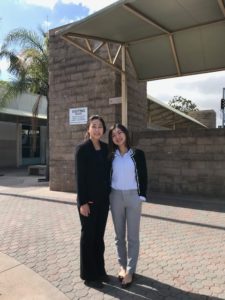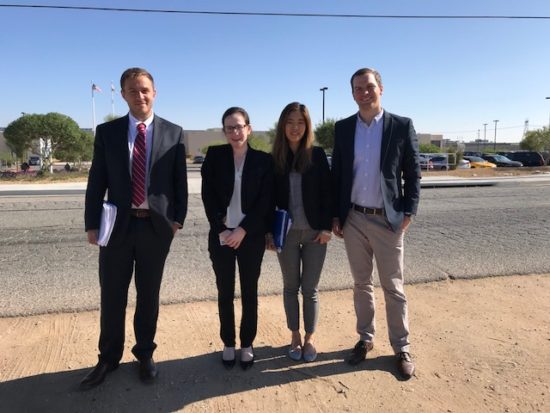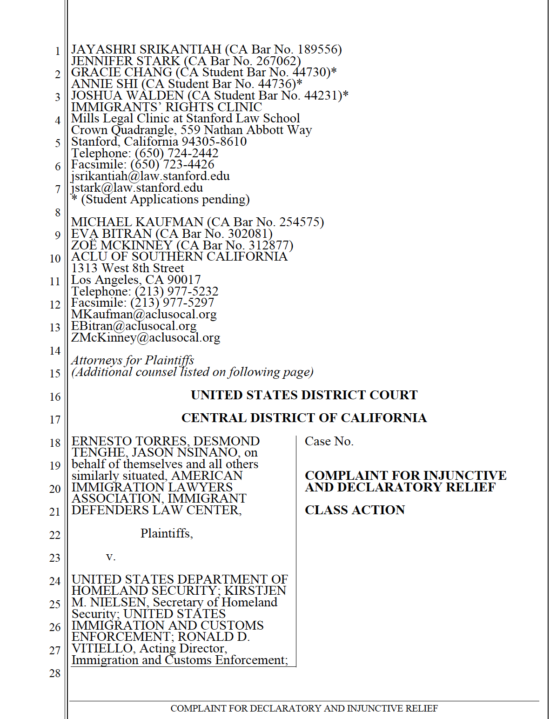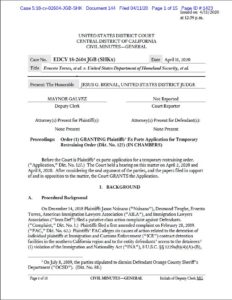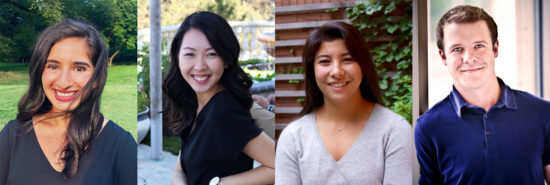Immigrants’ Rights Clinic Advocacy: Assisting Detainees Without Access to Confidential Attorney Communications
The Immigrants’ Rights Clinic became involved in advocacy efforts to ensure attorney access to detainees in Southern California because of the experience of an IRC client “R”, who was transferred to a Southern California detention facility in 2018. The IRC completely lost contact with “R” after the transfer. The Department of Homeland Security (DHS) would not even reveal where “R” was detained, much less how to contact him by phone. Once IRC students were able to locate the client, DHS and the detention facility refused to arrange for telephone calls. Our client “R” tried to contact us but he was not able to do so because he could not afford the expense of the call. Even if he had been able to call, the call would have been recorded and monitored. The clinic students were ultimately required to fly down to the facility just to make contact with the client. The IRC learned that many detainees in Southern California faced the same challenges as our client “R.”
Students conducted complex legal research to identify potential legal challenges to the barriers to communication. Through their research, the students developed claims to challenge the detention practices that deny immigrant detainees and advocates the opportunity to meaningfully communicate with each other.


